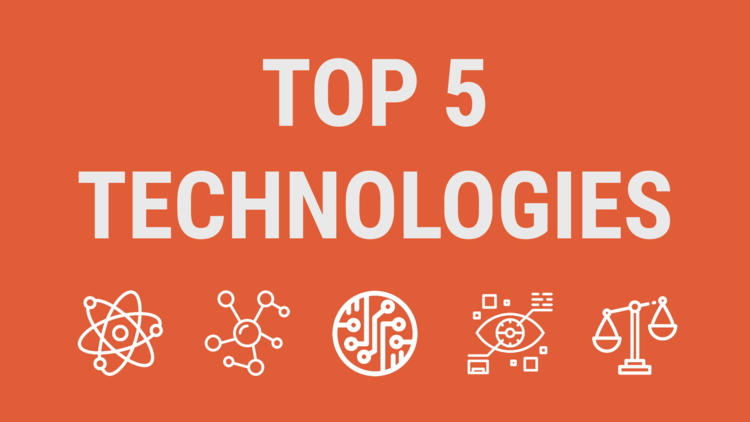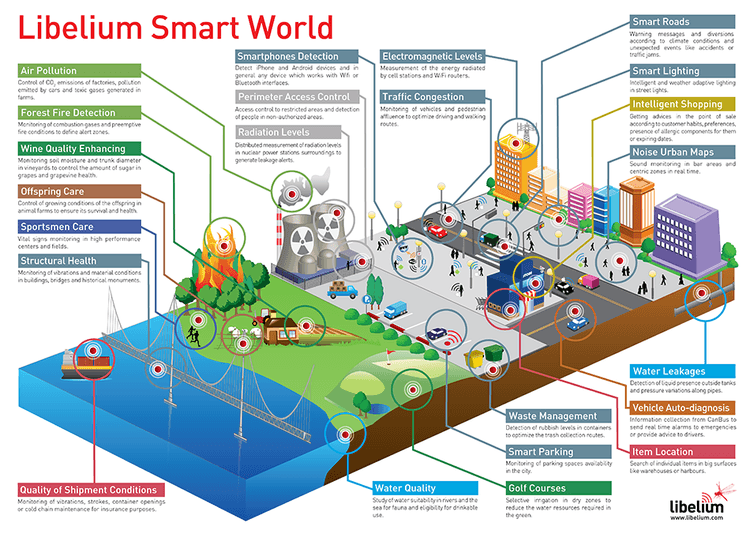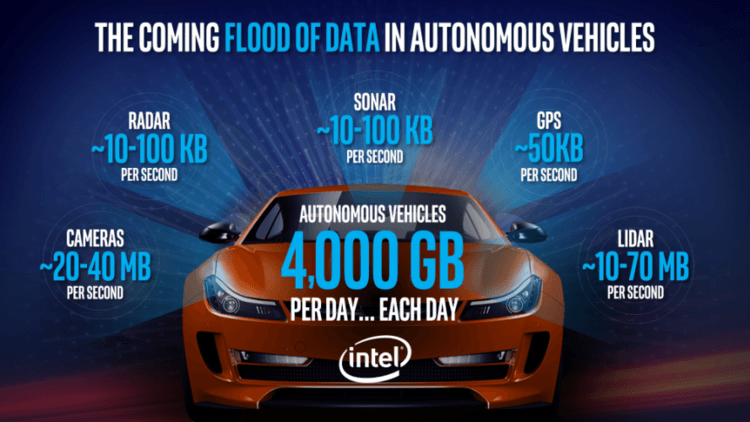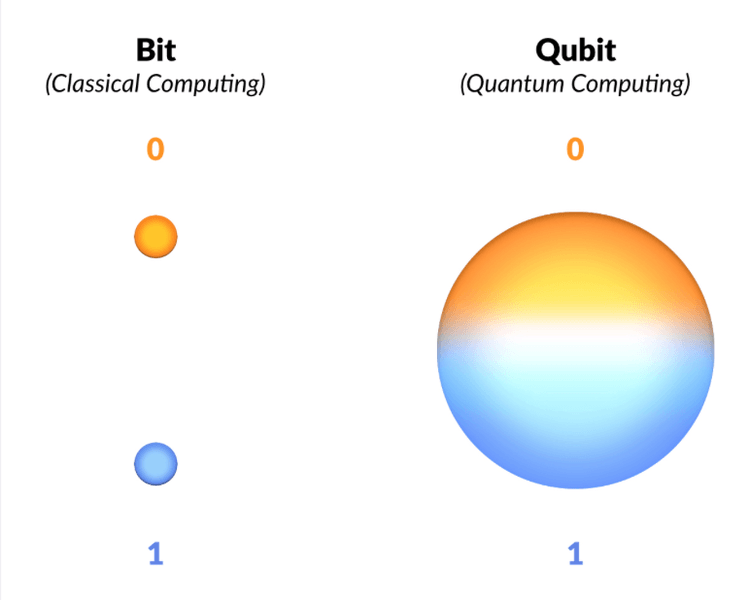We can all play a role in what happens in the future. Moreover, no future is brighter than one that involves technology.
Emerging technology is playing such a significant role in how we work and play, we’re seeing everyone from tech titans in Silicon Valley to bureaucrats in Brussels joining the discussion.
Putting the future of emerging technologies into context
Each year our QUALITANCE team gets together and we discuss what happened in the past year and what technologies we think will make it big in the year to come.
We discuss the factors that we think help focus our attention on emerging technologies with the most positive impact. At the core of our Future Horizons program and our search for the Top 5 Technologies there are the following four criteria:
- User impact – Practical and meaningful use cases for technology to solve a real-life problem.
- Problem solving – Would a customer pay to solve this problem? A classic feature-vs-product question.
- Addressable market – Are there enough customers in the market to warrant the investment risk?
- Underlying conditions – Are there tools and talent in the market to work on this product?
We strive for an educated guess, i.e. a thesis or a philosophy that filters the candidates down to a few essential technologies. It’s no different from stock investing and providing venture capital.
Why futurism matters
Future gazing is forward-looking, being optimistic, and it forces us to consider the expansion of what we know is possible. For many years this has been the exciting nature of future predictions.
However, for the first time, we need to consider the downside of it too. Through 2018 we’ve seen a deluge in leaks, hacks and privacy bungles from both traditional and startup companies. This step-change has ignited a growing debate on privacy, security and identity and it’s highjacked the technology conversion. So get ready for a few surprises in our future predictions.
2017 top technologies in review
We first started our picking emerging technologies in 2017. The three big picks in 2017 were:
1. Virtual Reality
We completely bombed on VR. It was too slow and expensive to produce VR experiences and showed little progress despite the positive developments of platforms from Samsung, Google, Oculus and many others. This VR failure was a sharp reminder of the need for feasibility in scaling emerging technologies.
2. Blockchain
Cryptocurrencies like Bitcoin have primarily defined the blockchain boom. However, we see business embracing the blockchain far beyond currencies with applications like smart contracts. PWC recently found 84% of large companies are actively involved with blockchain.
3. Voice as an Interface
However, the big winner from our picks two years ago was Voice as an Interface. Amazon Alexa and Google Home have exploded in popularity.
Our tech predictions for 2018
For 2018, we picked five emerging technologies and once again we had some winners and losers.
1. Augmented Reality (AR)

Future of TV: Hurricane Florence in Mixed Virtual Reality
AR has proven much easier to implement than VR, and 2018 saw several high-profile AR executions. From David Bowie costumes to hurricanes.
Another signal of technology on the rise is government contracts and engagement. Microsoft has outperformed other younger tech titans with military contracts and FDA approval.
2. Autonomous vehicles

Uber self-driving car crash
Dope! We expected way too much of the first autonomous vehicles. Last year we saw a fatal car crash by an autonomous Uber, and Apple vastly reduced its team and investment on their autonomous Project Titan.
Why all this failure? Simple answer – complexity. There are way too many factors required for a successful AV. From regulations and road conditions to traffic and sensors, there’s a lot going on there. Then try applying that scale. Put autonomous vehicles on the back burner, down but not out.
However, before you lose all hope. Here come Japanese and minimal design kings Muji with an autonomous vehicle you’ve got love.
3. Face recognition

China facial recognition surveillance
I remember how many people were skeptical of face recognition on our list last year. However, it’s more than a login process for your iPhone. It’s everywhere from the KFC at the mall to the streets of Beijing.
It worked! However, it’s scary too. Amazon, Google and Microsoft experienced employee protests over the companies effort to sell their face recognition technologies to the government.
George Soros, the billionaire investor and philanthropist, publicly called China’s president ‘the most dangerous opponent of free societies’ because of the face recognition AI the country is using.
4. IoT

Casino hacked through fish tank
The Internet of Things technology has led to sensors everywhere and helping the edges of networks become smart. However, just like face recognition, IOT had its share of problems. A casino was recently hacked via a thermometer in a lobby aquarium exposing over 10GB of customer data.
“The attackers used that to get a foothold in the network. They then found the high-roller database and then pulled that back across the network, out the thermostat, and up to the cloud,” a Darktrace expert said.
5. Artificial Intelligence

Google Assistant books a haircut
AI has a way to go. If you don’t believe me, check out the series I did with Professor Dan Cautis from Georgetown University.
In 2016, we saw Google’s Deepmind beat the World Champion of the board game Go. In 2018, we saw Google once again produce a nice bit AI theatre when they demonstrated the Google Assistant booking a haircut. However, the list of recent AI breakthroughs is quite long.
Over the 5 picks from 2018, we’ve seen some ups and downs. You’d expect nothing less from the world on emerging technologies.
What’s next in emerging technologies for 2019

1. Sensors everywhere

Sensors IoT and Smart City Heaven
You’ve heard of smart cities and smart homes! Well, we think that’s pushing things a little too far. A more realistic look at the developments in IoT, devices and networking is ‘sensor ubiquity’.
From our homes to deep in urban centres to distant farming areas – our environments are being sprinkled with networked sensors. They report back to the cloud with data on wind, temperature, humidity, traffic, and other indicators.
Smarties cities could become a reality in the long term when device miniaturisation and 5G is a reality and working like a dream. Until then, expect to sensors proliferate. BusinessInsider is predicting that there will be over 64 Billion IoT devices active by 2025.
Cities like Toronto are taking this to the max and pushing for highly connected and sensor-driven smart cities. These two cities represent only a fraction of the 34 Billion expected to be spent in 2020 on Smart Cities.
2. Edge computing

What data does an autonomous car produce?
The cloud is great. However, it’s not always the right solution. You may not have the connectivity or the speed from your sensor or device to the cloud. This problem is where edge computing steps in.
Take an autonomous vehicle, the best example of edge computing, you’d prefer to be processing the data in real-time as the car location. A delay could be very costly. That’s why the tech titans are creating edge networks that have low latency and can handle massive bandwidth traffic. They also strive to serve millions of simultaneous connections.
IDC predicts edge computing and infrastructure will account for 18% of all IoT infrastructure investments. No wonder, because many tech gurus claim edge computing to be more secure than cloud and micro-services.
3. Quantum computing

Qubits and quantum computing compared
For all time as we know it, computers have been binary. Operating systems have been just a series of ones and zeroes. Now scientists found Qubits, and this indicates we can get quantum computer speed and it can deliver processing of millions of simultaneous tasks.
This discovery means we are facing a severe rethink of computing. Satya Nadella, Microsoft CEO says: “The world is running out of computing capacity. Moore’s law is kinda running out of steam … [we need quantum computing to] create all of these rich experiences we talk about, all of this artificial intelligence.”
If you thought quantum computing was going to grow – you haven’t seen anything. If you combine all the research on quantum computing, you will notice between 40-80% annual growth predictions.
Quantum computers are so new; we haven’t had the chance to see much of their potential. However, IBM and Microsoft are starting to release Quantum as a Service (QaaS). QaaS accelerates our opportunity to solve several complex problems such as:
- Finding new scientific discoveries from big data dumps
- Creating new finance models
- Optimising supply chain processes
4. Mixed reality

Honda Mixed Reality Race
The combination of Virtual Reality and Augmented Reality (Mixed Reality) is a powerful means of creating immersive experiences. We expect to see AR take the lead and let VR compliment the use case on a few occasions.
The real surprise player in this space is Microsoft. Thanks to the Midas touch of Satya Nadella, the company’s big bet on HoloLens has paid off. They’re winning big contracts to implement their mixed reality solution and there’s more to come. This year we can expect a new device called Andromeda. Rumours abound that this might be a redefining breakthrough for the mixed reality category.
Three industries stand out for Mixed Reality:
- Gaming
- Education and learning
- Healthcare and medical devices training and use
Research firm Research & Markets recently found that the worldwide mixed reality market is forecast to record a CAGR of about 70.20% from 2018-2023.
If you’re still not convinced that combining AR and VR into a Mixed Reality, please spend 2:58 minutes to watch IndyCar driver Graham Rahal in a real 2018 Honda Civic Type R race against pro gamer Peter Jeakins in a virtual Forza Motorsport 7.
5. Privacy and ethics

Facebook privacy and surveillance
Now it’s time to dig into the downside of all this technology disruption. The by-product of all this technology is the data we produce.
The human race and our machines create 2.5 quintillion bytes of data generated each day. That’s the equivalent to 250 million human brains broken down by neurons.
However, it’s no the data that’s bad. It’s the decisions companies make when they have the data in their hands. Facebook won the prize last year for the most privacy bungles. Also, last year former National Security Agency contractor Edward Snowden accused Facebook of being a surveillance company rebranded as a social media company.
Automation is a significant contributor to the privacy problem. We produce lots of data and then let applications automate multiple data-driven actions. Automation of technology is the only way we can cope with so much data. We have a classic catch 22.
This trend is leading consumers to question the darlings of tech. Given the privacy concerns about Google, last year we saw privacy advocate DuckDuckgo increase its daily search activity by 50%. People are searching for a Google alternative.
Bring transparency to tech
While Apple is attacking Facebook and Google for their privacy failings, it leaves is us all wondering where we can find technology we can trust. The real currency for 2019 may lay not only in developing cool emerging technologies, but doing it with a focus on transparency.



HoloLens Defines Mixed Reality and How It Can Work
Posted at 13:42h, 14 July[…] We see this ethics debate playing out in the other 3 technologies I picked for 2019: […]
9 ways to learn new skills and boost your working from home - QUALITANCE
Posted at 16:41h, 15 July[…] you want, you can also revisit what trended in 2019, 2018, and […]